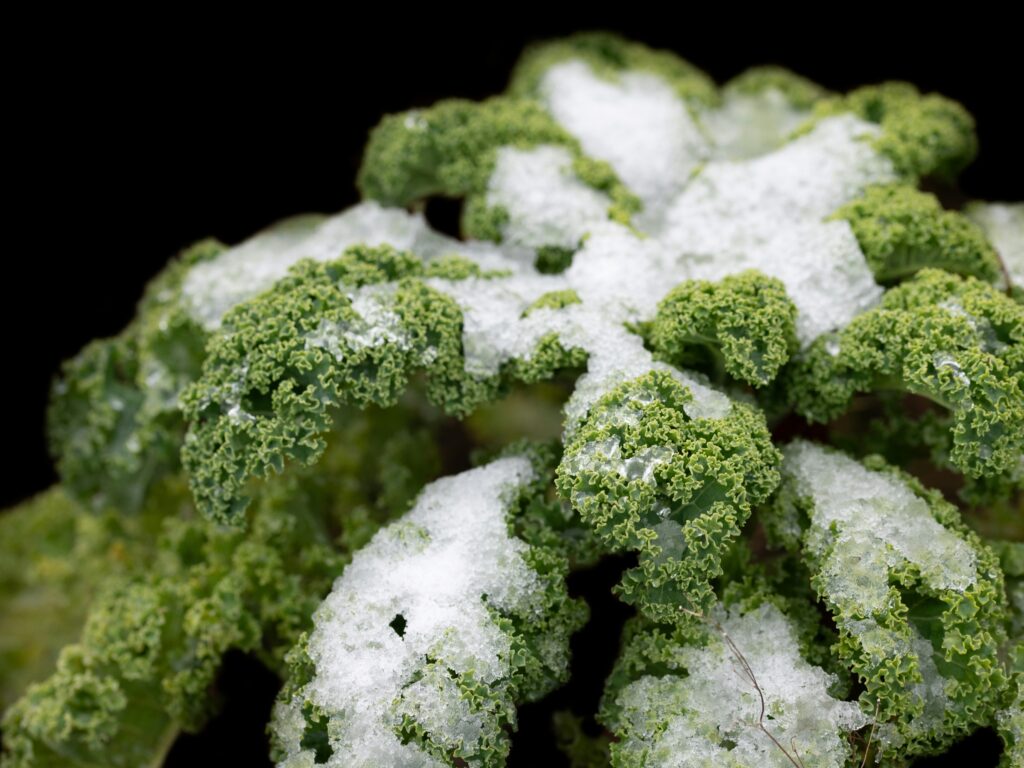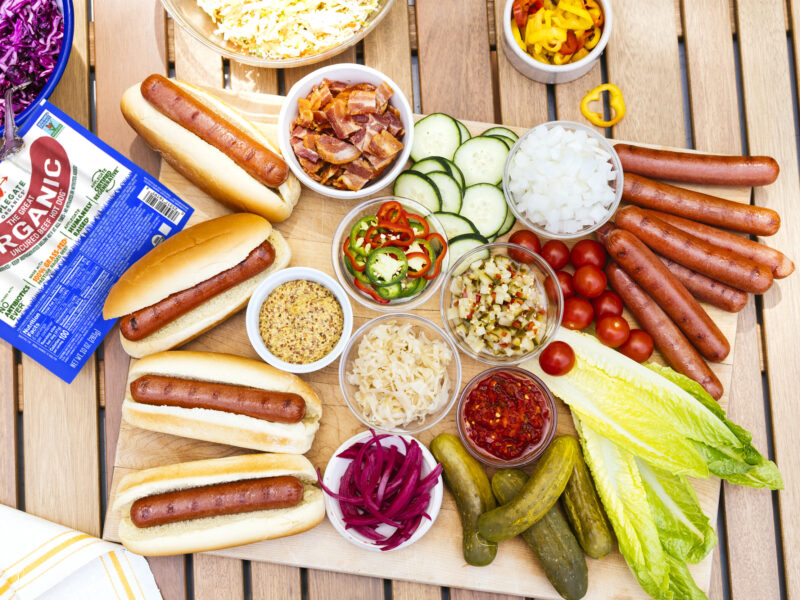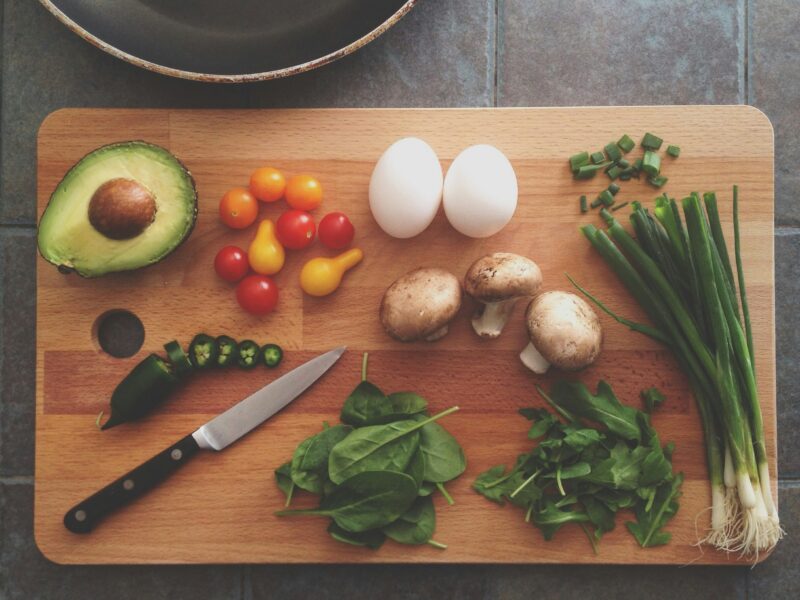As winter blankets the landscape with snow and frost, many vegetable gardens lie dormant, awaiting the warmth of spring to burst forth with new life. However, with careful planning and selection, you can continue to enjoy fresh, nutrient-rich vegetables even in the chilliest months of the year. In this guide, we’ll explore a variety of cold-hardy vegetables that thrive in winter conditions, providing both sustenance and satisfaction to the dedicated gardener.
- Kale. Known for its hardiness and nutritional value, kale is a staple of winter gardens. Varieties such as Lacinato (also known as dinosaur kale) and Winterbor can withstand frost and even improve in flavor after exposure to cold temperatures. Packed with vitamins A, C, and K, as well as calcium and iron, kale is a powerhouse of nutrients that can be enjoyed in salads, soups, and stir-fries throughout the winter months.
- Brussels Sprouts. Brussels sprouts are another cold-tolerant vegetable that thrives in winter gardens. These miniature cabbages develop a sweeter flavor after experiencing frost, making them a delectable addition to cold-weather meals. Rich in vitamins C and K, as well as fiber and antioxidants, brussels sprouts are a nutritious choice for winter harvests.
- Carrots. While carrots are typically associated with summer gardens, they can also be grown in colder climates with proper protection. Varieties such as Napoli and Bolero are particularly well-suited to winter cultivation, producing sweet, crisp roots that can be harvested throughout the season. Carrots are an excellent source of beta-carotene, vitamin K, and potassium, making them a healthy addition to winter meals.
- Spinach. Spinach is a versatile leafy green that can be grown year-round in many regions, including winter. Varieties such as Winter Bloomsdale and Tyee are bred for cold tolerance, allowing them to thrive in chilly temperatures. Spinach is packed with vitamins A, C, and K, as well as iron and folate, making it an excellent choice for winter salads, soups, and smoothies.
- Winter Squash. While summer squash may wither in the cold, winter squash varieties such as butternut, acorn, and delicata thrive in cooler temperatures. These hearty vegetables can be stored for months after harvest, providing a steady supply of nutritious meals throughout the winter. Winter squash is rich in vitamins A and C, as well as fiber and antioxidants, making it a valuable addition to winter gardens.
If growing outdoors isn’t an option for you, we highly recommend growing some greens indoors. Finding organic greens locally during the winter can be a challenge. One solution is to grow your own – and you may be surprised by how easy it can be! Use our organic greens growing guide here.
When it comes to greens, a recent study in Neurology found that “those who ate the leafy greens each day had slower rates of cognitive decline compared to those who ate the least.” In fact, those who ate greens had the memory equivalent of people 11 years younger!
A recently discovered gene reveals the importance of eating your greens, according to another study. Known as T-bet, the gene instructs precursor cells in your intestinal lining to produce innate lymphoid cells, which protect your body against gut infections and inflammation, control food allergies and intolerances, support a healthy immune response, and seal the leaks in your gut. This important gene gets switched on by cruciferous veggies, such as broccoli, microgreens, and brussels sprouts.
Leafy greens have also been linked to a natural way to relieve stress. They’re an excellent source of folate, which helps your body produce mood-regulating neurotransmitters, such as dopamine and serotonin. Here are other ways you can skip the stress with healthy additions to your daily routine.
You can also grow herbs all year long. Your new gardening efforts can lead to a larger outdoor spring garden if space and time permits. Spring is a good opportunity to get your hands in the dirt and grow some delicious organic food. Here are seven more ideas for starting and enjoying your organic garden.
With the right selection of cold-hardy vegetables, you can enjoy a bountiful winter harvest that nourishes both body and soul. By choosing varieties that are well-suited to cold weather and providing adequate protection and care, you can extend the growing season and savor the flavors of winter throughout the year. Whether enjoyed fresh from the garden or preserved for later use, these nutrient-rich veggies are sure to delight your taste buds and support your health during the coldest months of the year.
Happy gardening!









